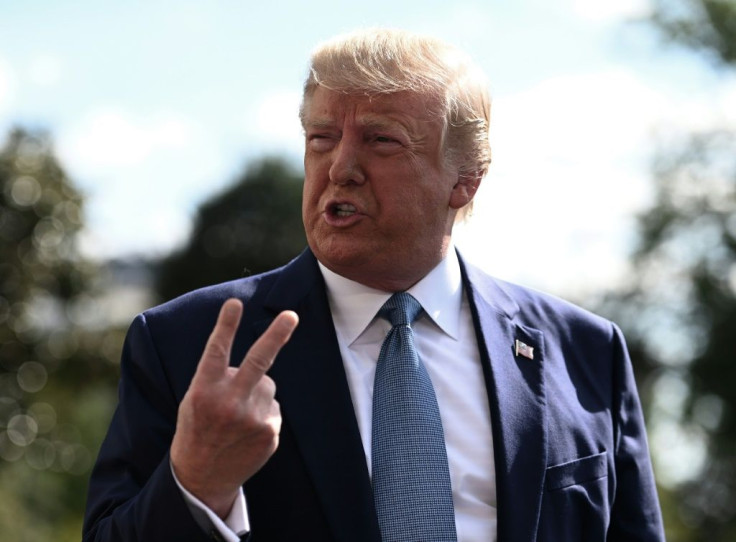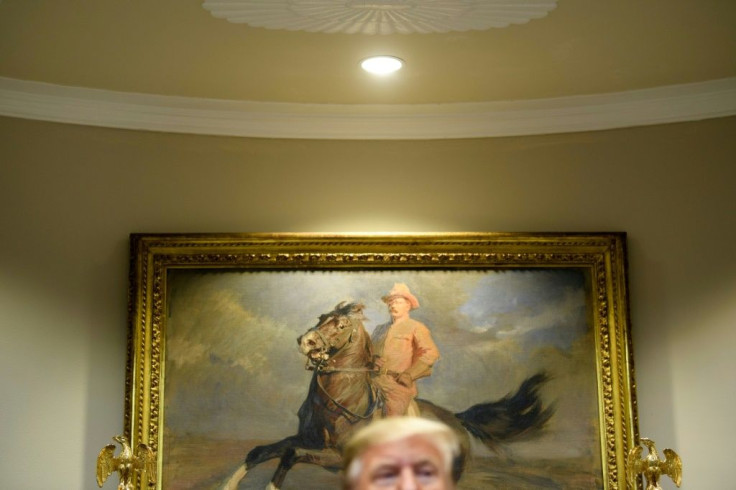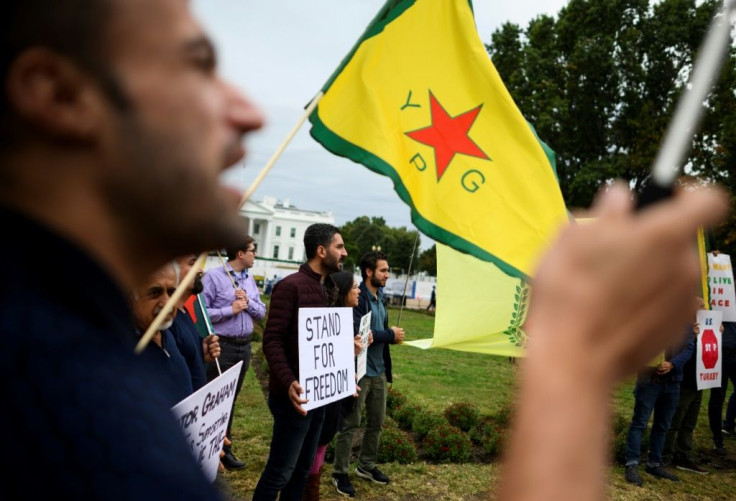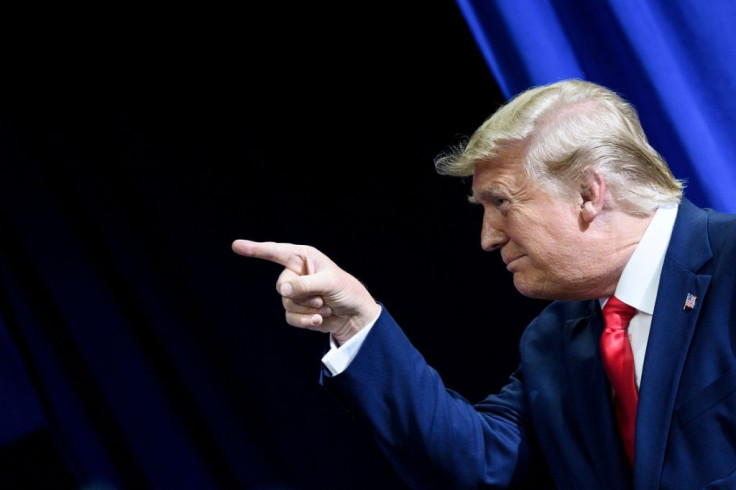Trump Promises 2020 Election 'Backlash' Against Impeachment

Reeling from a Democratic impeachment investigation and rebellion in his own Republican Party, President Donald Trump retreated Thursday to his comfort zone: the 2020 reelection campaign trail.
Trump left the White House for Minneapolis where he was due to gather with his ferociously devoted core supporters at the basketball arena. The president told reporters that images showing thousands lined up outside ahead of his arrival were "amazing."
The Minnesota city is a liberal bastion in the American heartland, giving Trump a juicy target for his favored rhetoric about a supposed far-left takeover of the United States.
Leftist Somali-American congresswoman Ilhan Omar represents Minneapolis and Trump, who has made Omar a kind of bogey figure among his right-wing supporters, is likely to tear into her.

On Friday, he will take the "Make America Great Again" show to Louisiana.
Respite from DC troubles
The focus on reelection in 2020 provides a respite for Trump after a turbulent two weeks.

Democrats who have been accusing Trump of abusing his office throughout his first term believe they are finally cornering the president with an impeachment probe into his dealings with Ukraine.
Trump allegedly pressured new Ukrainian President Volodymr Zelensky to restart a dormant, largely discredited corruption probe of Joe Biden, the leading Democratic candidate to take on Trump next year.
The president has pushed back hard -- refusing to cooperate with the impeachment inquiry -- and seeking to turn the entire scandal into a boost for his reelection campaign.

But public support for impeachment is slowly growing, with a new poll from Fox News -- a channel favored by US conservatives -- showing 51 percent now back his removal from office.
"Whoever their Pollster is, they suck," Trump responded on Twitter.

With control of the lower house of Congress, Democrats are likely to impeach in the coming months, even if few believe the Republican-led Senate will actually convict Trump and force him from office.
Trump argues that his now infamous July 25 phone call with Zelensky did not feature any kind of pressure, but an innocent proposal for pursuing corruption.

He got a boost Thursday when Zelensky backed his version of events, telling journalists "there was no blackmail."
Democrats argue that given the vast power differential between the two leaders, Trump did not need to make explicit threats and that his request to Zelensky for "a favor" was enough.
On Wednesday, Biden gave a blistering speech in which he called for impeachment, accusing Trump of "shooting holes in the constitution."
On Thursday, two Florida-based businessmen linked to Trump lawyer Rudy Giuliani -- who is at the heart of the controversy -- were arrested over alleged campaign finance violations.
The pair, Americans born in Ukraine and Belarus, were accused of funneling foreign funds to US political campaigns, including $325,000 which went to a fundraising committee for Trump's 2020 reelection.
Trump, who has been photographed with both men, said he had no idea who they were. "I don't know about them. I don't know what they do. I don't know," he told reporters.
Restless Republicans
The Republican Party has largely stayed behind Trump over the Biden scandal. Only a handful of high-profile senators have broken ranks, lambasting the president's behavior.
But a highly unusual uproar broke out this week in the party over Trump's decision to abandon Kurdish allies in Syria to an offensive by the far bigger US ally Turkey.
Trump is casting his withdrawal of a small number of US troops from northern Syria as part of his promise to disengage the United States from Middle Eastern wars.
However, the withdrawal effectively gives Turkey the green light for a cross-border offensive aimed at the same Kurdish militias that had previously been fighting alongside US soldiers against the Islamic State group.
Top Republicans are openly rebelling against Trump over what they call a betrayal.
In a bizarre justification on Wednesday, Trump told journalists that the Kurds had not always been US allies, noting they did not "help us in Normandy" during World War II.
The Kurds say they lost about 11,000 people in the US-led fight against the Islamic State.
Senator Lindsey Graham, a senior Republican, argued the US administration had "shamelessly abandoned" the Kurds.
© Copyright AFP 2024. All rights reserved.





















